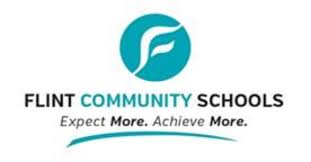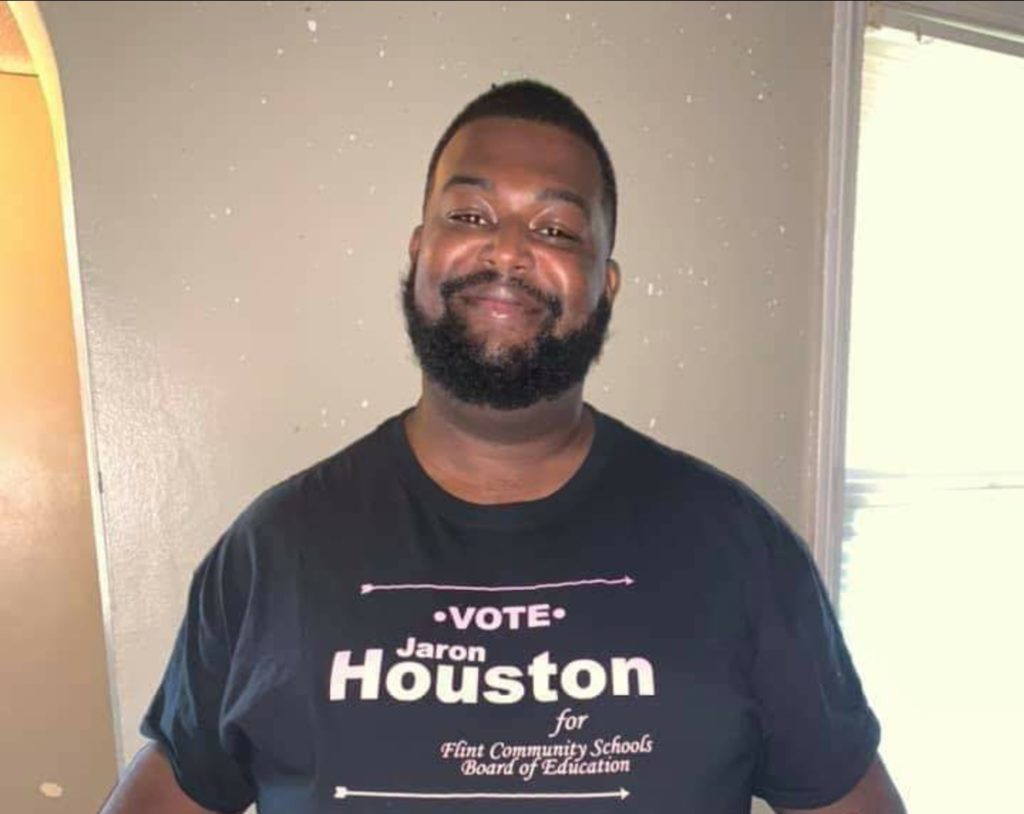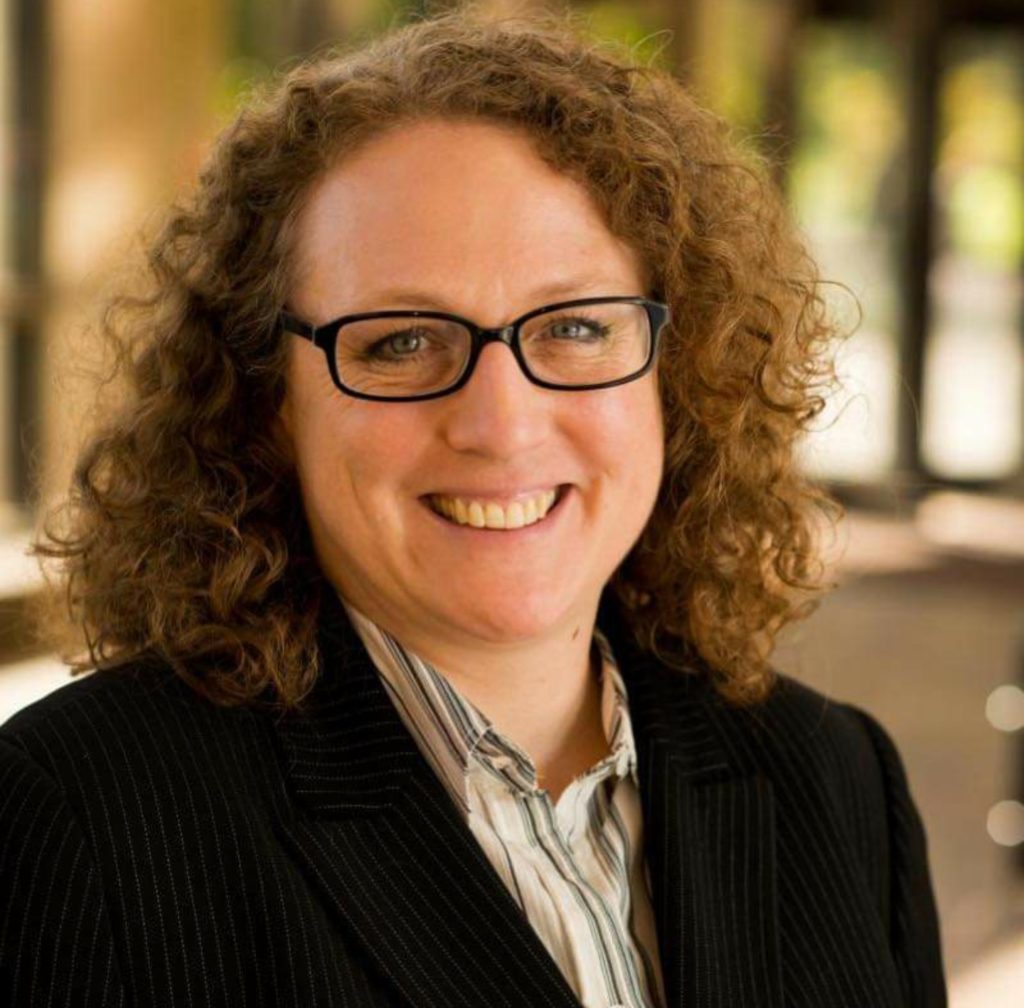By Harold Ford
Assisted by EVM Editorial staff Tom Travis, Jan Worth-Nelson and Ted Nelson
SCROLL DOWN FOR CANDIDATE PROFILES AT THE END OF THIS STORY
“When parents are looking at where to send their kids (to school), there’s an awful lot of faith involved in the sense that, you may not have any money, but you’re investing your kid in a school district. It’s the job of the school district, the challenge of the school district, to be worthy of that faith.”
– Paul Jordan, member Flint Board of Education, 2005-2009
The election of 2020, up and down the ballot, according to many political pundits, is one of the most critical in a generation. That includes, of course, the battles for control of the executive and legislative branches of the Federal Government that garner most of the headlines. But it also includes contests at the state and local levels of government.
In Flint, voters will fill three seats on the Flint Community Schools (FCS) Board of Education for six-year terms, 2021-26. Arguably, Flint’s public schools face an existential challenge unlike anything since the opening of Flint High School at South Saginaw and Third Street in September of 1875, 145 years ago.
FCS leaders face daunting challenges that include
- Safely providing instruction to its student population during a deadly pandemic while navigating mixed signals from Michigan’s state government;
- Continuing loss of student population—now reported at just more than 3,000, possibly making Flint the 8th largest school system in in Genesee County—and resultant loss of state aid;
- An ongoing precarious financial state largely caused by loss of student population and legacy debt from a 2014 loan totaling nearly $20 million;
- Meeting the requirements of a three-year (2018-19 to 2020-21) partnership plan imposed by the State of Michigan to improve test scores by 10 percent, reduce suspensions by 10 percent, and increase student attendance to 90 percent;
- The erosion of staff—78 educators departed FCS in 2019 taking with them 1,014 years of experience in Flint schools—and subsequent staffing of classrooms with paraprofessionals and guest teachers still seeking certification;
- Adopting a strategy to rid the district of at least 22 buildings already closed and 16 vacant properties—including the Northwestern campus that still houses the district’s central kitchen;
- A recent history of instability in the central office highlighted by the appointment of seven superintendents in 15 years.

Recent FCS success stories include:
The assembling of an administrative team under the leadership of Flint’s own “home-grown” Anita Steward, someone with deep roots in the Flint community, possessing a leadership style that offends virtually no one, and an apparent workaholic that seems to have answers for any questions asked of her;
- Introduction of a thoughtful, flexible plan, crafted with substantial input from the medical community, for the reopening of Flint school buildings for face-to-face/brick-and-mortar instruction;
- Substantial voter approval of a 4.0 millage proposal in March 2020 that should help to retire the district’s overall debt and reduce the annual budget deficit;
- Two judicial decisions that are likely to provide additional funds for Flint’s special needs students;
- The adoption and implementation of a forward-looking balanced calendar;
- The settlement of two lawsuits brought by the American Civil Liberties Union that will impact discipline and funding for special education;
- A plan for infrastructure upgrades at all FCS school buildings including heating and air-conditioning;
- Provision of a safe water supply for staff and students;
- Settlement of new contracts with all three employee bargaining units—United Teachers of Flint, Local 517 of the SEIU (paraprofessionals), and Congress of Flint School Administrators.
Board candidate qualifications
The qualifications to run for a local education board in Michigan seem simple and straightforward. A candidate must be 18 years of age; a U.S. citizen; a Michigan resident for at least 30 days; a resident of the school district 30 days prior to the election; and a registered voter in the school district where s/he is a candidate.
Further, a $100 filing fee payable to local clerks is required. Property ownership is not a requirement for candidacy. Some felonies disqualify a candidate.
Beyond the official qualifications for local boards, the Michigan Association of School Boards recommends the following unofficial, yet important, requirements:
- A willingness “to take the time to study current education issues…”
- A willingness “to pursue the skills, the knowledge, and the training necessary to become a fully engaged and effective board member.”
- The ability “to work as a governance team member, putting personal agendas aside and working cooperatively for the best interest of students in your school district.”
- A readiness “to champion an effective public school system to serve our youth despite diminishing resources and increasing demands of the global economy.”
- Preparation “to speak up and serve as an advocate for public education in your community.”
- A willingness “to uphold state laws…put learning first, and give priority to what’s best for children.”
The Michigan Association of School Boards (MASB) reminds us that Michigan’s 4,000 locally elected school board members “annually oversees expenditures of $14.58 billion, sets policies affecting the futures of 1.48 million students, and makes decisions that impact cultural and economic life in more than 600 communities.”
Departures
The terms of three incumbent board members come to an end on Dec. 31, 2020. None of them opted for reelection.
Casey Lester, board president (with nearly two years on the board), Betty Ramsdell, secretary (11 years), and Blake Strozier, trustee (10 years), take with them more than two decades of Flint board experience.
Candidates
Candidates for the FCS Board of Education include:
–Timothy Abdul-Matin
–Mario DeSean Booker
–Michael D. Doan
–Joyce Ellis-McNeal
–Antonio Forte II
–Ariana Hawk
–Jaron Houston
–Laura Gillespie MacIntyre
–Billie D. Mitchell
–Anita Moore
–Roemon M. Murphy
–Leondrew Wesley
At first glance, the dozen candidates collectively offer up little name recognition in terms of elective experience. Thus, East Village Magazine (EVM) has attempted to gather information and photos of all the candidates to provide to Flint voters prior to the Nov. 3 election.
Over a two-week period, EVM made multiple attempts to contact all of the candidates using contact information provided to the Genesee County Clerk’s office which administers local elections. EVM staff sent letters to the candidates’ street addresses; sent emai lmessages; made many phone calls; left voice mail messages; and in a few instances used social network sites and mutual acquaintances.
At press time, eight candidates had responded to requests for information from EVM: Abdul-Matin; Booker; Doan; Houston; MacIntyre; Ellis-McNeal; Mitchell; and Moore.
Four candidates had not provided information: Forte; Hawk; Murphy; and Wesley.
Paucity of information
Other than names, addresses, and contact information, virtually nothing is publicly available to voters about the candidates for the Flint board. The League of Women Voters (LWV) no longer publishes its Voter Guide that was distributed with the area’s largest daily newspaper.
Rather, information about candidates is available at LWV’s Vote411 Voter Guide website. At press time, information was available at the website for only one of the twelve candidates: Mario D. Booker. The same message appeared for all other 11 candidates: “Candidate has not yet responded.”
East Village Magazine questions for candidates
In addition to a request for a brief biography and photo, candidates were asked three questions by EVM.
- Flint’s student count is barely more than 3,000 at the start of this, the 2020-21 school year. About 15,000 school-age children live in Flint but more of them attend other private and charter schools and other public schools through the Schools of Choice program. What should be done to stabilize the student population of Flint Community Schools?
- This is the final year of a three-year improvement plan with the state of Michigan. According to that plan, Flint Community Schools needs to meet three goals or face possible serious consequences. Those three goals are: 1) Increase attendance to 90%; 2) Improve test scores by 10%; 3) Reduce suspensions by 10%. Please comment.
- One of the most important responsibilities of a school board member is to ensure the financial stability of the school district. Please comment about the state of affairs with regard to the finances of Flint Community Schools.
Candidates’ responses are just as they were provided to EVM, unedited.
Three of the people represented in this special edition of EVM will be elected to six-year terms on the FCS Board of Education. During that time, they will make decisions about critical issues that will affect the lives of thousands of youngsters.
EVM Education Beat reporter, Harold Ford, can be reached at hcford1185@gmail.com
Candidate profiles
Their responses were reproduced as the candidates submitted them. Photos provided by the candidates.
TIMOTHY ABDUL-MATIN

My name is Timothy Abdul-Matin, I am a 37-year-old lifetime Flint resident, devout husband, father, community activist, mentor, and member of the UAW local 659. As I prepare to make my run for a member of the Flint School Board, I want you to know that I am dedicated to systemic change and have a passion for imparting life skills into children. This passion for children coupled with my community activism and life experience of being affected by the school to prison pipeline, I believe that I am one of the voices needed on the Flint Community School board.
1. To stabilize the student population of Flint community schools, we first must leverage funding to improve the infrastructure so that students are in a safe and secure environment. The esthetics of facilities influences student morale. Secondly, we must expand our educational curriculum by implementing a more inclusive curriculum that promotes relevant, culturally influenced education that can give us a competitive edge over other school districts. Thirdly, a rebranding of Flint community schools.
2. To increase attendance, we must target students and parents by adopting a model that gives them an incentive to be present in school. We must collaborate with community organizations to tend to the needs of students that have a problem with absenteeism. I think that we should eliminate or put less emphasis on testing. Finally, we must eradicate policies that disproportionately impact students of color. Initiating best practice restorative justice practices and implementing trauma informed programming will curb the high rate of suspensions.
3. Our district has struggled with funding for years. We must pressure the State to increase the per student funding model. We need more funding for our students in the Flint school district, specifically those in need of special education. Also, we must find other ways to create revenue for our schools. Lastly, we can not continue to incur debt from past mistakes.
MARIO BOOKER
 I am a product of Flint and Beecher education, but Flint is my home. I am a minister, father, husband, activist, I.T. Ph.D. candidate, and State Learning Facilitator. I desire to bring my education, passion, and experience to the board to forge a better future for all children.
I am a product of Flint and Beecher education, but Flint is my home. I am a minister, father, husband, activist, I.T. Ph.D. candidate, and State Learning Facilitator. I desire to bring my education, passion, and experience to the board to forge a better future for all children.
1. Enrollment retention is the primary objective. We need to retain the students we have, and increase enrollment through strategic planning. Strategic points include community involvement, rebranding Flint Community Schools, devoting resources to scout and capture students, and launching a parent ambassador program. I believe incorporating these into a solid strategic plan and enlisting community partners to help rebranding will change the narrative and perspective.
2. It is deeply concerning that the 36-month outcome goals are near, and the fear is that those goals may not be obtained. One of the primary concerns is that students in the FCS continue to score well below state level assessments. A comprehensive effort with collaborative support is needed to equip students with strategies to succeed in MSTEP and MME testing.
3. The prospective financial outlook for FCS is bleak. Upon review of the approved budget, there is a $48 million decrease from FY ‘19 to FY ‘20, and once supported services and expenditures are deducted, the overall deficit is $2.1 million. This creates a financially unstable operating environment. To balance the budget, the board will have to consider diversified revenue streams as well as additional cuts.
MICHAEL DOAN JR
 1. I think the curriculum is better at the private schools and non urban schools. They have more to offer as far as sports, extracurricular activities and class choices. Parents want a challenge mentally for there children and better opportunities for their children and Flint is not offering those things.
1. I think the curriculum is better at the private schools and non urban schools. They have more to offer as far as sports, extracurricular activities and class choices. Parents want a challenge mentally for there children and better opportunities for their children and Flint is not offering those things.
2. What a challenge. As I stated from the first question, Flint is so limited on what they can offer to these children I don’t know how at this point to increase the headcount. Parents who have the ability to send their children somewhere else for better education and opportunities are going to do so. I think state testing is a joke and should be gone. However if they do have the obtain qualified teachers how can that increase? Reducing suspensions will have to come with a disciplinary revamp, because right now child get suspended for breathing too hard.
3. I am not familiar with the financial woes of the district except that they are in shambles. I just think it needs a total revamp and a priority check.
JOYCE ELLIS-MCNEAL

• Education: MPA, BS-Business Administration/Organization Management, Associate-Computer Technology, PhD-Biblical Theology/Christian Leadership.
• FCS Learning Support Specialist (Contract), Guess Teacher (Contract), Literacy Specialist, and grass root leader and activist.
• Public Health Navigator Coordinator (Michigan United)
• EJAM Fellowship Leadership.
1. COVID-19 has affected the way we educate our children and our economy. Stabilizing student population cannot be done with out first determine how much money will FCS need to maintain stability in staffing and services. An estimation of increased costs and revenue losses due to COVID-19 is urgent to determine how stabilization can begin. Our most vulnerable student schools will need to provide added support, including some form of extended learning time.
2. For FCS to weather these goals under the current budget forecast, our district will need assistance from the federal government as it relates to increase attendance to 90%. Due to Flint Water Disaster and Pandemic, we must remodel our school infrastructures and create a new way of teaching our children to be self-sufficient. Improving test scores and reduce suspension are attainable goals, which I have worked in schools and see that this can be done. However, state, and federal funds are much needed.
3. According to Executive Director of finance Carrie Sekelsky, Monday, June 15. She said she was presenting the “worst case scenario” budget so the board can see “how horrible it could be.” Beginning Fund Balance: $10,740,354; Revenues: $60, 294,897, Expenditures: $(73,151,762); Ending Balance ($2,116,511). I would like to look more into expenditures and once again, due to Pandemic and Flint Water Crisis more federal assistant is needed, as well as the recent past Mileage.
JARON HOUSTON

I am a father of five teenage children. I have been married for 15 years. I have worked in education for almost 20 years. I love working with students and being an active part of their learning. In order to be successful, we need people on our board that are willing to make changes to promote retention and increase in student enrollment.
1. We have to bring more programs to our schools, as well as create change within the district that would promote retention of students. Parents would like to a safe environment for their children are safe and that they are obtaining a quality education. We have to also think of new, innovative ideas that will bring more opportunities to students. We must bring back community and the sense of pride that was once a staple in this city.
2. Attendance can be increase by staying in communication with parents and students. Also, if there are any barriers the family might be facing, resources can be provided to them in order to help to increase attendance. Improving test scores would mean that teachers will be held accountable for the material covered. Reducing suspensions by 10% would also mean that there has to be more restorative justice within the school building to help make things right and have alternative disciplines.
3. There have been many talks about closing schools and freeing up dollars from the district. The plan has to have a clear message that on a union front, can be worked towards. We must find stability in the leaders that are appointed to positions. Hold them accountable for working together in the best interest of the district and more dedicated to the holistic approach to education.
LAURA MACINTYRE

Laura MacIntyre is an educator, mom of 3, public sociologist, local activist, and Flint native who attended Flint public schools and was raised by 2 Flint public school teachers. She has over 30 years experience as in education and is a proud member of the American Federation of Teachers.
1. The same thing that should be done to stabilize the overall population of the Flint community – or any community – in general: First, support a water affordability plan to ensure that all households have safe, clean and AFFORDABLE water. Second, encourage home ownership as opposed to predatory home rentals and leasing; and third, work to ensure that school districts remain public and local and change the ways that charter schools are able to unfairly compete with public education. For the City of Flint in particular, we must acknowledge that the water crisis has not been fixed and is ongoing, and as a result, all students should be declared “special education” and given IEPs (Individualized Education Programs) and the resources that go along with IEPs.
2. The three-year improvement plan with the state of Michigan is disingenuous and designed to create failure for the public school system in Flint. Increased attendance can only be accomplished with wider systemic changes, some of which are addressed in the answer to the first question. Improved test scores are a red herring. We need to demand that standardized testing is eliminated. As for reducing suspensions by 10%, simple: Stop suspending students! Eliminate all forms of the School-To-Prison-Pipeline and institute a comprehensive Restorative Justice Program in the schools. Essentially, stop policing our students and treating them like criminals. No student deserves to be suspended for the vague or unsubstantiated charge of “insubordination” or wearing a hooded sweatshirt during the winter when the heating system is malfunctioning and the temperature of the classroom is consistently below 60 degrees.
3. The revenue sharing for cities and the ways in which the public schools are funded in the state of Michigan is criminal and needs to be recalculated. Until this is addressed, there is little hope for public schools to meet the artificially constructed measures of “financial success” imposed on them. It is no coincidence that one of the components of any of the iterations of the financial emergency manager laws in the state of Michigan include the takeover of both municipalities and public SCHOOL DISTRICTS. This is a clear violation of our democratic process and a brazen attempt to undermine, destabilize, and privatize our community resources, including the public school systems.
BILLIE MITCHELL

Billie Mitchell- a Mother; FCS graduate; Founder & Mentor of a youth organization, remembers what it was like when FCS were flourishing and wishes to be a part of FCS’s comeback. She believes her background in Public Health sets her apart from the other candidates because she understands factors that affect school environments in particular that disrupt a child’s learning. Billie’s lengthy experience of advocating for children and families also adds to her resume’ which displays a youth-focused and driven public servant.
1. I believe what should be done to stabilize the student population for Flint Community Schools is to first obtain FCS’s proper funding that is being held by outer city programs. With proper funding, students can receive the programming that Flint School’s once offered; improve school facilities; supply school books to use for homework and offer student/family resources that create for an exceptional school experience.
2. Flint Community Schools will not be able to meet the goals of the final three-year improvement plan without its resources that allow for them to retain students. Parents will continue to remove their children from an underfunded district. It is an unfair expectation on the district and the state should be making adjustments to save one of their districts, instead of placing expectations on a district that has been setup to fail.
3 Since Proposal A was implemented, Flint Schools have been exempt from receiving monies from property taxes to foot the bill for operational expenses. It has increased the debt of Flint Schools who are currently repaying a bond that helped with the district’s deficit. If we could eliminate laws and rules that steal from funding sources that help public schools operate, we could witness a change in Flint’s district, specifically in maintaining the school buildings themselves.
ANITA M. MOORE

Anita Moore, born and raised in North Carolina found her education foundation early. It was always a natural niche for her. Got to babysitter and friendly neighbor in the hood, followed her calling as a fresh high-school graduate making magic in Michigan pursuing her undergrad in Early Childhood Education with studied interest in fine arts and Spanish.
Self-Study in metaphysics, yoga and alternative natural living formed a way to merge education with the essence of existing. The Lifelong Learning of oneself to better understand and relate to the world abroad. Mother of one and student of life, loves engaging in things that stimulates the mental, physical and spiritual aspects of oneself.
Travels across country and to Central America has widened views essential to seeking solutions based on sustainable success, first within oneself that extends to the community collective. Equally passionate about the many levels of learning and awareness that “Nothing Without Joy” continues to ever evolve the efficient efforts exerted everyday.
1. Stabilize the foundation of the school’s system. An increase in the student body would be a direct display of needs being met by the school’s services, overall.
Seeking stability and strength within Home-school partnerships.
2. Those goals are obtainable with efficient time and efforts toward:
• Restructuring the system and some formats
• Consideration of how students learn
• Minimizing time; maximizing efforts
• Taking into account the physical foundations/buildings and environment that learning takes place
• Adapt new approaches that reflect real life experience.
• Make students want to show up ready and willing
• Stabilization assistance for the home lives of the attendees. Providing solutions to the needs, challenges and barriers encountered daily.
• Curriculum: where’s the interests of the industries and stakeholders?
• Alternative yet efficient methods of experimental experiences
• School as a program for the business world at large.
• Revolutionizing outdated systems
• Continued Education/updating for educators
3. I’m definitely interested in more insight on this subject. Overall, society’s shift is toward sustainable solutions.
Patrick Jackson, the late public relations adviser and practitioner reminded school officials that ‘the true customers of public schools are not the parents who send us their children or the businesses that employ our graduates. Rather, he would say, our key stakeholders are the taxpayers who send us their money to operate our schools and who have the power to vote ‘yes’ or ‘no’ at the ballot box. They are the owners of our school systems. Efforts must be made to communicate to and build relationships with these owners, especially those who don’t have school-age children?”
The four candidates EVM staff were unable to get information from were:
Leondrew Wesley, contacted via three phone messages, one letter to his street address, and an email.
Roemon M. Murphy, contacted via three phone calls, one letter to his street address, and an email.
Antonio V. Forte, contacted via two phone calls, one letter sent to his street address, and an email.
Ariana Hawk, contacted via two phone calls — left a message each time, reached out through social media through mutual acquaintances, one letter sent to her street address, and an email.
This EVM reporting was conducted by the following team of four: Tom Travis, managing editor; Harold C. Ford, education beat reporter; Ted Nelson, layout and consulting editor; and Jan Worth-Nelson, consulting editor.


You must be logged in to post a comment.